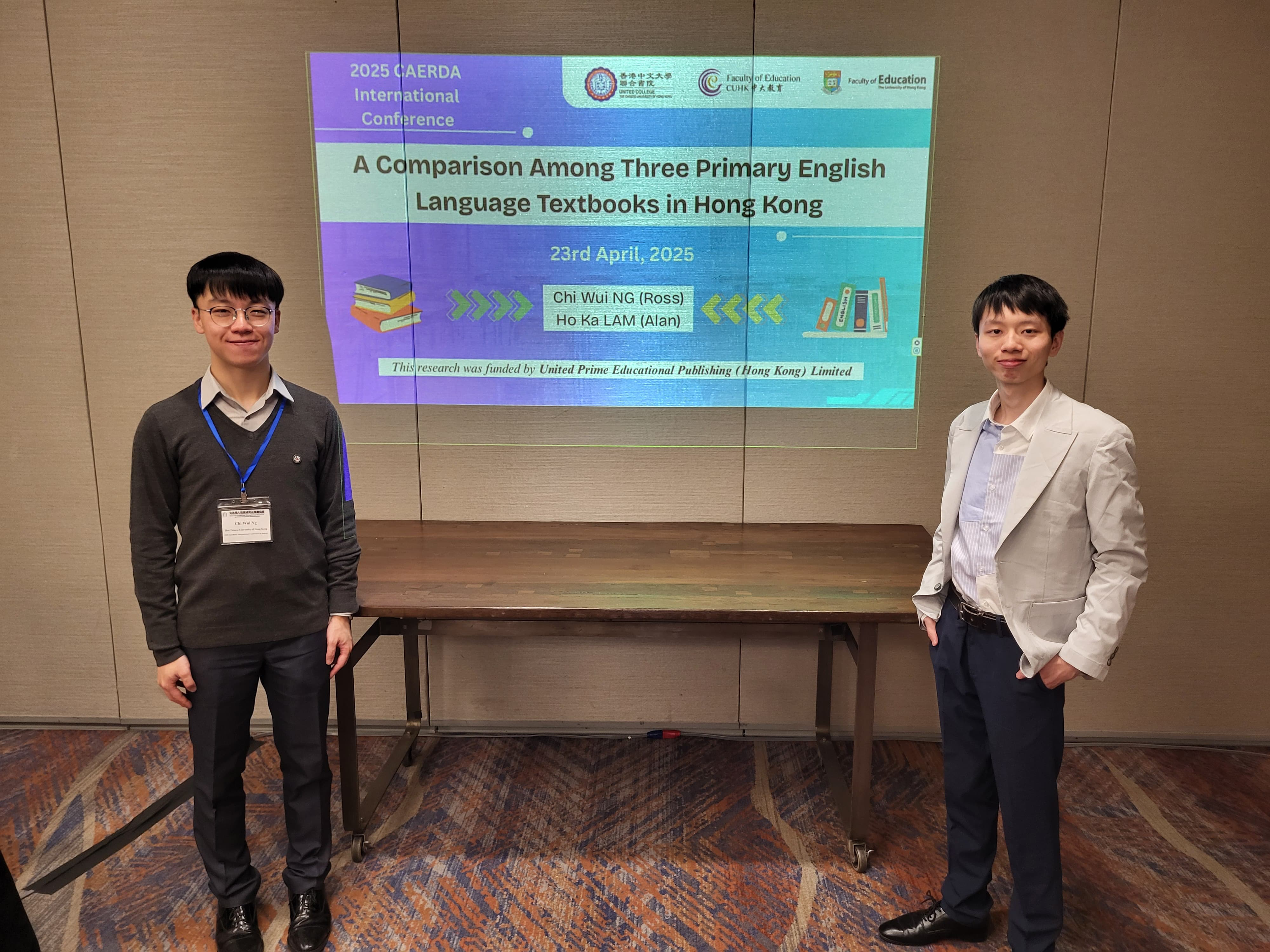ELED Student Presenting Paper at the 2025 CAERDA Conference

We are pleased to share with you the achievements in academia of our Year 1 student, Alan Lam, who co-presented a research paper titled “A Comparison Among Three Primary English Language Textbooks in Hong Kong” with the 2018 graduate, Ross Ng, at the Chinese American Educational Research and Development Association (CAERDA) 2025.
Let’s hear what Alan says about the paper presentation at the CAERDA conference:
“Recalling the memories of how curious I was about the pedagogical features of textbooks, I was very grateful to be able to finally present a research paper about primary English textbooks in Hong Kong at an international conference. In late April 2025, Mr. Ross Ng, previously my English teacher in S2 and a graduate of the BA (English Studies) and BEd (English Language Education) Co-terminal Double Degree Programme (ELED), and I took part in the CAERDA and AERA conferences. Not only was I able to grab such a valuable opportunity to showcase my interest in textbook design in an international context, but I could also learn a lot about contemporary educational research.
I still vividly recall my curiosity about the textbooks my teachers asked us to buy. In primary school, I noticed elements such as “spiral learning” in my English book and the careful design of teaching sequences in my Mathematics textbooks. In secondary school, I analysed the reasons behind the different pedagogical features of the textbooks. For instance, I noticed that my Physics textbook taught us through an investigative approach with an incorporation of the nature of science ideas. After my HKDSE exam, Mr. Ross Ng invited me to help research three different local primary English textbooks, which made me excited because I could finally take my interest to a whole new level with proper guidance!
We presented the research at the conference. In our study, we looked at the structure of each textbook and then compared the textbooks with the local English curriculum in terms of pedagogical features and subject knowledge. While conducting the document analysis, I learnt the specific items covered in the local curriculum documents and the pedagogical features suggested for school teachers. Knowing these is highly important for successfully implementing school-based instruction as a future English teacher.
After presenting the research paper, we took some questions from the audience. Some questions were quite interesting. For example, someone asked why Mandarin is not used as the medium of instruction in English classrooms in Hong Kong. This reminded me that in some other places, English may not be the medium of instruction in ESL classrooms. Others asked whether English is a second language or a foreign language in Hong Kong. The comments provided constructive feedback that allowed us to improve the research further.
In addition, I also listened to others’ presentations. Some of them, especially those involving quantitative research, were particularly interesting. For example, I learnt about Bayesian methods in educational research, using the growth mindset in ESL teaching and artificial intelligence tools for analysing quantitative research data. Learning more about the contemporary research, I will continue to read more to enrich my understanding in these areas.
I am grateful to the faculty for providing me with such a fruitful experience by subsidising the conference ticket. This conference allowed me to share our findings about the primary English textbooks, and opened the doors for me to learn more about contemporary educational research.”
